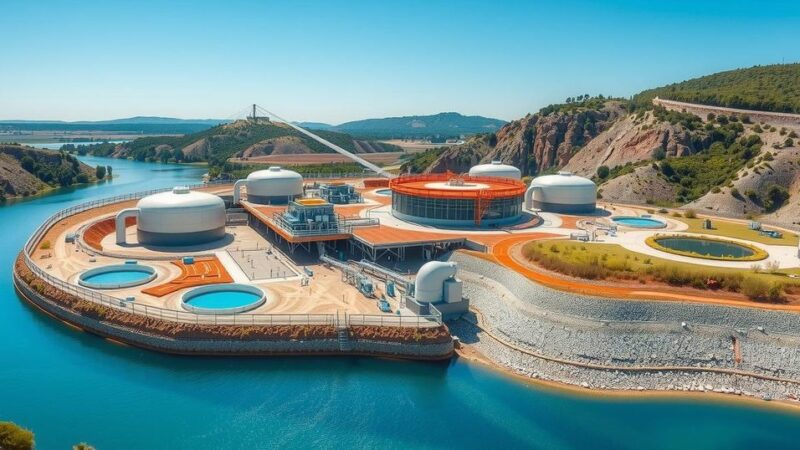A global study indicates severe toxic pollution in rivers across Spain, Ethiopia, Tunisia, Kenya, Nigeria, Pakistan, and India, with the Manzanares River in Madrid being the most contaminated in Europe. Over 25% of rivers tested showed harmful pharmaceutical levels, raising concerns for public health and ecosystems. The findings highlight the urgent need for advanced water treatment solutions.
A recent global study has unveiled alarming levels of toxic pollution in rivers across several countries, including Spain, Ethiopia, Tunisia, Kenya, Nigeria, Pakistan, and India. The assessment, which examined over 200 rivers worldwide, highlights significant threats to both ecosystems and human health due to hidden contaminants. Notably, the Manzanares River in Madrid has been identified as the most polluted river in Europe, showcasing dangerous levels of substances such as paracetamol, caffeine, and antibiotics.
This comprehensive research was conducted by the University of York and included water samples from 1,052 locations in 104 countries, testing for 61 pharmaceuticals like antidepressants and beta-blockers. The study’s findings were alarming, revealing that 25.7% of the rivers contained pharmaceutical concentrations toxic to aquatic life. This level of contamination poses risks to both ecological balance and public health, particularly through the potential development of antibiotic-resistant bacteria.
Moreover, the pollution crisis extends beyond Europe, with rivers in Africa and Asia reflecting similar or worse conditions. Particularly, countries such as Ethiopia, Tunisia, Nigeria, Pakistan, and India were noted for having severely polluted water sources. This widespread contamination calls for urgent measures, emphasizing the importance of investing in innovative technologies and improved treatment systems to mitigate the risks posed by pharmaceutical and chemical pollutants entering waterways.
The findings of this study urgently highlight the need for global awareness and action regarding water pollution, particularly as it pertains to public health and environmental sustainability. Addressing these challenges requires collaboration among nations to improve water quality through enhanced infrastructure and governance.
In summary, the study reveals a critical pollution crisis affecting rivers worldwide, with particular emphasis on the toxicity levels in Spain’s Manzanares River and various others in Africa and Asia. The presence of harmful pharmaceuticals threatens both human health and ecological systems. Addressing these issues will necessitate significant investment in treatment technologies and increased global efforts toward sustainable water management to protect the health of both people and the environment.
Original Source: www.travelandtourworld.com






